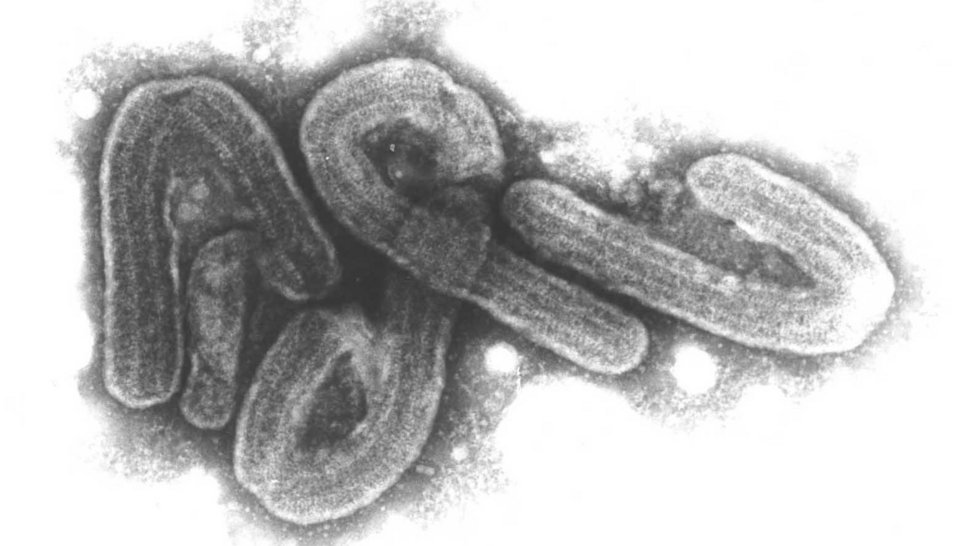Combining expertise to combat emerging viruses
German Research Foundation (DFG) approves interdisciplinary Collaborative Research Centre with significant BNITM participation
How exactly are RNA viruses with epidemic potential structured? What happens at the molecular level during an infection? And how does the human immune system react? These are the questions asked by the new Collaborative Research Centre ‘Emerging Viruses: Pathogenesis, Structure, Immunity’ at the Medical Faculty of the University of Hamburg at the University Medical Center Hamburg-Eppendorf (UKE). More than a third of the leading researchers (also) work at the Bernhard Nocht Institute for Tropical Medicine (BNITM). The SFB 1648 will receive a total of around eleven million euros until 2028.

Lassa, Ebola or MERS: these are just some of the diseases that the World Health Organisation believes could become an epidemic. What the diseases on the WHO Blueprint Priority List have in common is that they are caused by RNA viruses. The list is intended to help researchers prioritise the development of diagnostics, drugs and vaccines.
The new Collaborative Research Centre ‘Emerging Viruses: Pathogenesis, Structure, Immunity’ aims to research the fundamental structures and mechanisms of these viral infections. It aims to contribute to better treatment and prevention options - and to shorten the response time to outbreaks.
“Above all, we want to investigate how virus and host interact, where viruses are vulnerable and how immune responses can be optimised,” says CRC spokesperson Prof. Dr Marylyn Addo, Professor of Infectiology at the Faculty of Medicine, Director of the Institute for Infection Research and Vaccine Development (IIRVD) at the UKE and Head of the Department of Clinical Immunology of Infectious Diseases at the BNITM.

The CRC is based at the Medical Faculty of the University of Hamburg (UHH) and the University Medical Centre Hamburg-Eppendorf (UKE) and will receive a total of around eleven million euros until 2028. 26 researchers from the UKE, UHH, Hannover Medical School (MHH), University Hospital Basel, University of Lübeck, Friedrich Loeffler Institute (FLI) and Leibniz Institute of Virology (LIV) are involved. Seven alone belong to the Bernhard Nocht Institute for Tropical Medicine (BNITM). Together, they will work on understanding infection processes even more precisely at the molecular level. To this end, they will apply state-of-the-art techniques from the fields of cell and structural biology, immunology and biochemistry.

Prof. Dr Jürgen May, chair of the BNITM: “The new Collaborative Research Centre is an important building block for better pandemic preparedness. We are delighted to be able to contribute our decades of expertise to such an extent. I would like to thank all the staff who have worked on the proposal over the past few months together with our cooperation partners and thus convinced the German Research Foundation.”
The new CRC, headed by Prof. Dr Marylyn Addo, is closely tied to the University of Hamburg's Cluster of Excellence application ‘Gateways to Health’ in infection research. The BNITM is also involved in the application.
Collaborative Research Centres are long-term, interdisciplinary research collaborations that are funded over a maximum of twelve years and three phases. In this way, the DFG supports excellent and comprehensive collaborative projects in basic research.
About the Bernhard Nocht Institute for Tropical Medicine (BNITM)
The Bernhard Nocht Institute for Tropical Medicine (BNITM) is Germany's largest institution for research, care and teaching in the field of tropical and emerging infectious diseases. BNITM research has always focussed on global health / One Health and on translation - the transfer of basic research into application. This research approach is also reflected in the Institute's five sections: Pathogen (pathogen) -> Interface (immunology, host/pathogen) -> Patient (clinic) -> Population (epidemiology) -> Implementation (successful application and establishment of knowledge).
Current thematic priorities are malaria, haemorrhagic fever viruses, neglected tropical diseases (NTDs), immunology, epidemiology and the clinic of tropical infections as well as the mechanisms of virus transmission by mosquitoes. For the handling of highly pathogenic viruses and infected insects, the institute has laboratories of the highest biological safety level (BSL4) and a safety insectarium (BSL3). The BNITM's mobile laboratories are available for global outbreak control of highly pathogenic or highly infectious viruses.
The BNITM is a National Reference Centre for the detection of all tropical infectious agents, a WHO Collaborating Centre for Arboviruses and Haemorrhagic Fever Viruses, a WHO Collaborating Centre for Behavioural Research for Global Health and an institute in the Leibniz Association.
Together with the Ghanaian Ministry of Health and the University of Kumasi, the BNITM operates a modern research and training centre in the West African rainforest, which is also available to external working groups. The institute also maintains numerous other collaborations in other African countries such as Gabon, Nigeria, Tanzania and Madagascar.
Downloads
Contact person
Prof. Dr Marylyn M. Addo
Head of Department
Phone : +49 40 285380-420
Email : sekretariataddo@uke.de
Corporate Communications University Medical Centre Hamburg-Eppendorf (UKE)
Phone : +49 40 7410-56061
Email : presse@uke.de
Julia Rauner
Public Relations
Phone : +49 40 285380-264
Email : presse@bnitm.de







